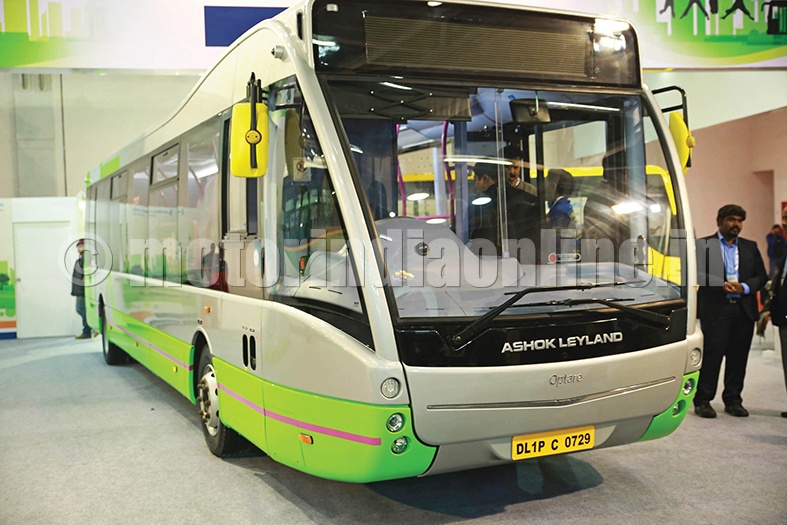Ashok Leyland Ltd., of the Hinduja Group which has over 70,000 employees in its fold, has its global presence across 35 countries. Jointly started by two vehicle manufacturers, namely, Ashok Motors and British Leyland, in 1914, the company has over the years succeeded in bringing in a new era in public transportation by introducing high-tech bus transportation systems. The company has many firsts to its credit, such as being the first vehicle manufacturer to introduce low-floor buses and its emergence as the fourth largest manufacturer of buses in the world.
With heavy fluctuations in the prices of petroleum products, vehicle manufacturers are now looking at electric or battery-operated systems that offer immense benefits like environmental-friendly, low-cost maintenance, better passenger comfort, etc. Keeping this in mind, Ashok Leyland is keen to introduce the Versa EV battery-operated bus into the Indian market. Currently Versa EV vehicles are produced by Optare, the Ashok Leyland Group company, in the UK with a growing market share.
These observations were made by Mr. S. Krishnan, Vice President (Engine Development), Product Development, Ashok Leyland Ltd., while addressing a seminar on ‘Transportation Industry Outlook: Present and Future’ held in Chennai.
Mr. Krishnan said petrol and diesel engines are more than 100 years old now. Since vehicular emissions are a major concern all over the world, electric buses are being increasingly resorted to. There is also growing popularity for hybrid vehicles which are slightly better than electric vehicles, offering several advantages like lightweight and emission-free environment.
In fact, Ashok Leyland has developed a hybrid bus, known as HYBUS, which was put to use for over 1,000 km during the Commonwealth Games. On the other hand, Versa EV buses are expected to be used at the world famous Eiffel Tower in Paris.
Smart bus for smart cities
Versa EV vehicles are known for their easy maintenance, excellent driving comfort, exceptional passenger capacity on par with fuel-driven vehicles, etc. Overall, it is a smart bus most suited for smart cities.
Mr. Krishnan also explained the various benefits of electric drive such as reduced costs, weight and volume, apart from improved performance efficiency and reliability.
It is officially learnt that, depending upon the Government subsidy as well as the establishment of power charging stations, Indian vehicle manufacturers will introduce electric/hybrid vehicles.
